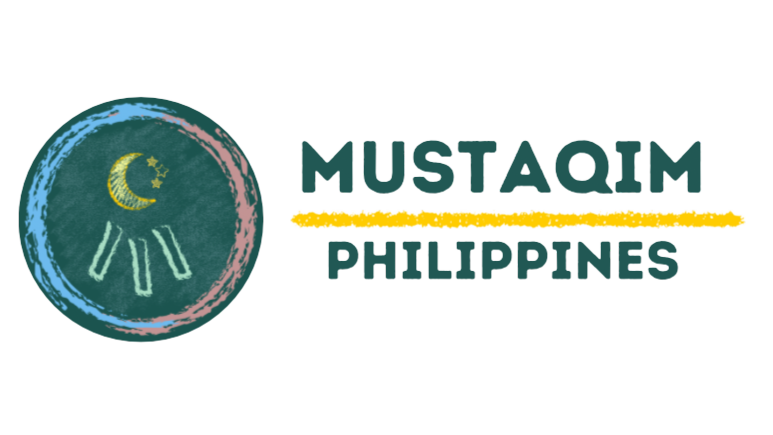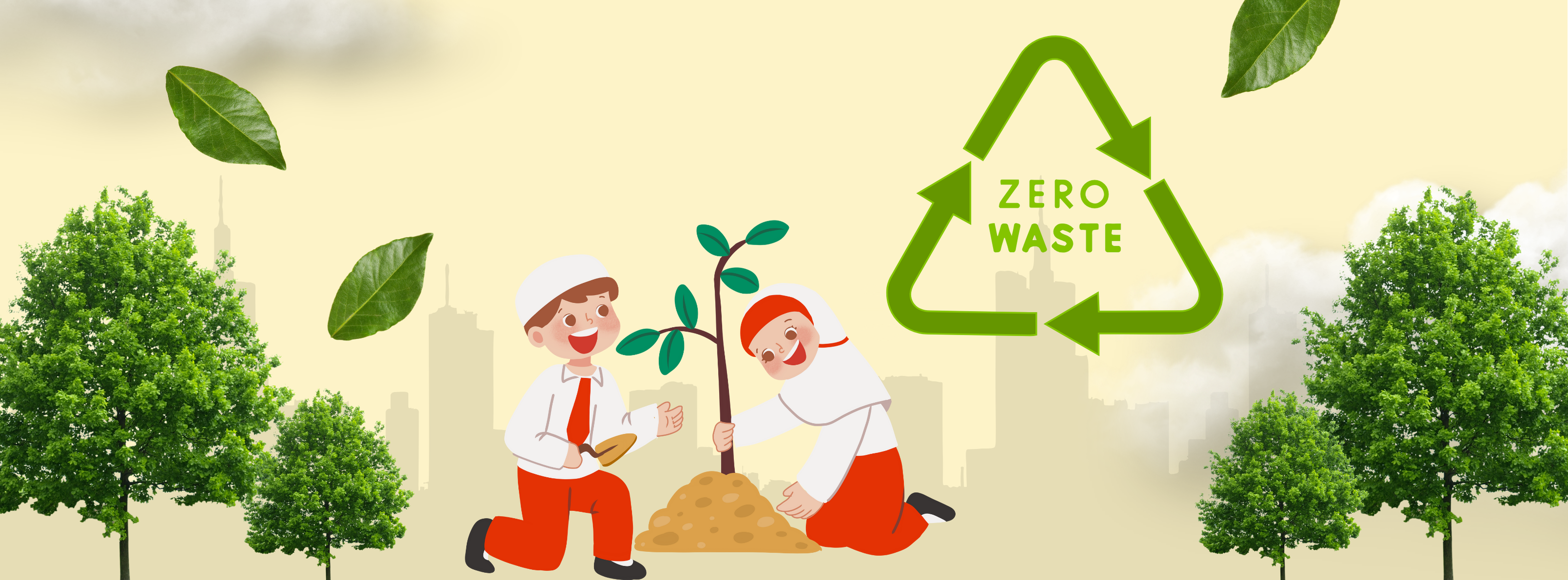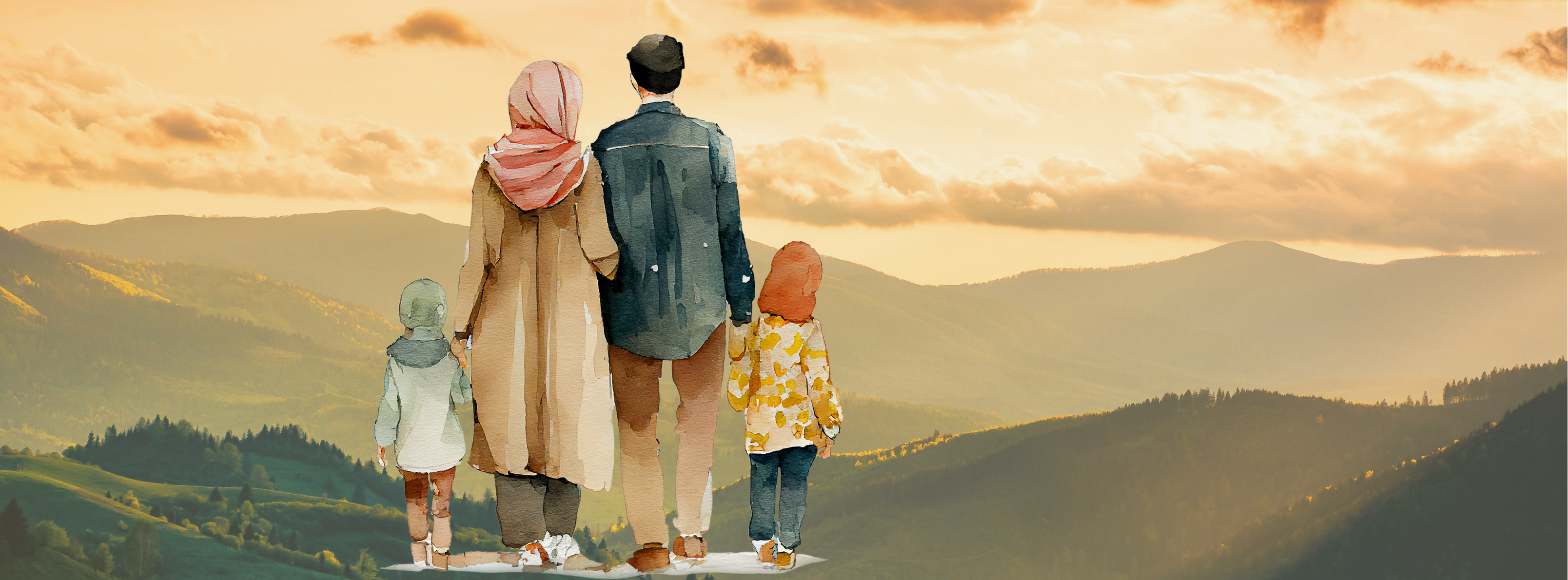Ang Mahalagang Tungkulin ng Kabataan sa Pag-aalaga at Pagpapanatili ng Malinis na Hangin
Sa kasalukuyang panahon, ang pag-aalaga sa kalikasan at ang pagpapanatili ng malinis na hangin ay naging isang mahalagang isyu na kinakailangang tugunan ng lahat ng sektor ng lipunan. Isa na rito ang kabataan, na may malaking gampanin sa paghuhubog ng mas malinis at mas maayos na kapaligiran para sa kanilang kinabukasan. Ang mga kabataan ay hindi lamang tagapagmana ng kalikasan, kundi may kakayahan din silang magsimula ng mga hakbang na magdudulot ng positibong pagbabago.
Pagtataas ng Kamalayan ukol sa Malinis na Hangin
Ang unang hakbang ng kabataan sa pagpapalaganap ng malinis na hangin ay ang pagiging mulat sa mga epekto ng polusyon sa hangin. Sa pamamagitan ng edukasyon at mga programang pang-kalikasan, maaaring matutunan ng mga kabataan kung paano nakakaapekto ang mga kemikal at usok mula sa mga sasakyan, pabrika, at mga basura sa kalusugan ng tao at kalikasan. Sa pagtangkilik sa mga makabago at environment-friendly na teknolohiya, maaari nilang maging halimbawa sa kanilang komunidad at makapagbigay ng tamang impormasyon sa iba pang mga kabataan.
Pagpapalaganap ng Zero-Waste Lifestyle at Green Initiatives
Ang mga kabataan ay may kakayahang magsimula ng mga hakbang upang bawasan ang basura at polusyon sa pamamagitan ng pagtataguyod ng "zero-waste lifestyle." Ang simpleng mga hakbang tulad ng pag-iwas sa paggamit ng mga plastik, pagtataguyod ng tamang pamamahagi ng basura, at ang paggamit ng mga produktong eco-friendly ay makatutulong upang mabawasan ang mga kemikal na nagiging sanhi ng polusyon. Ang mga kabataan ay maaari ding magsimula ng mga proyekto tulad ng tree planting, recycling programs, at pagtulong sa paglilinis ng mga komunidad upang mapanatili ang malinis na hangin.
Pagtangkilik sa Luntiang Paghahayupan at Pagpapaganda ng Likas na Kapaligiran
Ang kabataan ay may malaking gampanin sa pagpapanatili ng mga luntiang espasyo na tumutulong sa pagpapabuti ng kalidad ng hangin. Ang mga kabataan ay maaaring magsimula ng mga kampanya na magpapalaganap ng kaalaman ukol sa kahalagahan ng mga puno at halaman sa pag-aabsorb ng carbon dioxide at pagpapalabas ng oxygen. Ang simpleng pagsasagawa ng tree planting at pagtangkilik sa mga parke at taniman ay malaking kontribusyon na sa paglaban sa polusyon sa hangin.
Pagtutok sa Sustainable Transportation
Isa sa mga pangunahing sanhi ng polusyon sa hangin ay ang mga sasakyan na umaabot sa lungsod. Ang mga kabataan ay maaaring magsimula ng mga kampanya na magtutok sa paggamit ng mga pampasaherong sasakyan, bisikleta, at mga walking path upang mabawasan ang bilang ng mga sasakyan sa kalsada. Sa pamamagitan ng mga proyektong ito, hindi lamang nila matutulungan ang pagpapabuti ng kalidad ng hangin, kundi pati na rin ang pagbawas sa mga pangmatagalang epekto ng climate change.
Pagtutulungan sa Pagtutok sa Malinis na Enerhiya
Ang pag-shift sa renewable energy sources, tulad ng solar at wind power, ay isang pangunahing hakbang patungo sa mas malinis na hangin. Ang kabataan ay may malakas na boses sa pagpapalaganap ng mga ideya ukol sa paggamit ng mga alternatibong enerhiya. Maaaring magsagawa sila ng mga information drives o maging bahagi ng mga organisasyong nagsusulong ng renewable energy upang matulungan ang kanilang komunidad at bansa sa pag-transition mula sa mga fossil fuels patungo sa mas sustainable na mga pinagkukunan ng enerhiya.
Pagsuporta sa mga Batas at Polisiya para sa Kalikasan
Ang kabataan ay maaari ding magkaroon ng aktibong papel sa pagsusulong ng mga batas at polisiya na magpapaigting sa pagprotekta sa kalikasan at sa kalidad ng hangin. Sa pamamagitan ng pagiging aktibo sa mga youth organizations, maaaring magsagawa ng mga kampanya at petisyon na magbibigay diin sa pangangailangan ng mga lokal at pambansang gobyerno na magpatupad ng mga mas mahigpit na regulasyon laban sa polusyon at iba pang mga gawaing nakakasira sa kapaligiran.
Ang kabataan ay may mahalagang papel sa pagpapanatili ng malinis na hangin at kalikasan. Sa pamamagitan ng mga simpleng hakbang tulad ng pagpapalaganap ng kaalaman, pagtangkilik sa green initiatives, at pagpapakita ng tamang halimbawa sa kanilang komunidad, ang mga kabataan ay makakatulong upang masiguro ang mas malinis at mas maayos na kapaligiran para sa susunod na mga henerasyon. Ang kanilang mga hakbang ngayon ay magsisilbing pundasyon ng mas sustainable at malusog na bukas para sa lahat.
Sustainable Technology: Ang Kinabukasan ng Inobasyon para sa Kalikasan
Sa patuloy na pag-usbong ng teknolohiya, ang mundo ay nahaharap sa mga hamon ng climate change, pagkasira ng kalikasan, at pagkonsumo ng mga likas na yaman. Sa kabila ng mga pagsubok na ito, ang "sustainable technology" o teknolohiyang tumutok sa pangangalaga ng kalikasan ay nagiging mahalagang bahagi ng mga solusyon upang mapanatili ang balanse ng ating ekosistema. Sa artikulong ito, tatalakayin ang kahulugan ng sustainable technology, mga halimbawa nito, at kung paano nito binabago ang ating pagtingin sa teknolohiya at kalikasan.
Ano ang Sustainable Technology?
Ang sustainable technology ay tumutukoy sa mga inobasyong teknolohikal na idinisenyo upang mabawasan ang negatibong epekto sa kapaligiran, maprotektahan ang likas na yaman, at magtaguyod ng pangmatagalang pag-unlad. Layunin ng mga teknolohiyang ito na masiguro ang kaayusan ng kalikasan, pati na rin ang kakayahang matugunan ang mga pangangailangan ng kasalukuyang henerasyon nang hindi isinasakripisyo ang kakayahan ng mga susunod na henerasyon na matugunan ang kanilang sariling pangangailangan.
Mga Halimbawa ng Sustainable Technology
Renewable Energy Sources (Solar, Wind, Hydropower)
Ang mga renewable energy sources tulad ng solar power, wind energy, at hydropower ay ilan sa mga pinaka-kilalang halimbawa ng sustainable technology. Ang mga teknolohiyang ito ay kumukuha ng enerhiya mula sa mga likas na yaman na hindi nauubos at hindi nagdudulot ng polusyon, tulad ng araw, hangin, at tubig. Halimbawa, ang mga solar panels ay nagko-convert ng liwanag ng araw upang makapag-produce ng kuryente, samantalang ang wind turbines ay gumagamit ng hangin upang mag-generate ng enerhiya.
Electric Vehicles (EVs)
Ang mga electric vehicles ay isang makabago at environment-friendly na alternatibo sa mga tradisyunal na sasakyan na gumagamit ng gasolina o diesel. Ang EVs ay hindi naglalabas ng mga harmful emissions tulad ng carbon dioxide (CO2) at iba pang pollutants, kaya't ito ay isang pangunahing hakbang upang mabawasan ang polusyon sa hangin at ang pagsunog ng fossil fuels.
Green Building Technology
Ang mga green building ay mga istruktura na gumagamit ng mga sustainable building materials, may mga energy-efficient systems, at may mga disenyong tumutulong sa pagpapabuti ng enerhiya at pagbawas ng basura. Halimbawa, ang paggamit ng mga solar panels sa bubong, rainwater harvesting systems, at energy-efficient insulation ay ilan sa mga hakbang na nagpapababa sa paggamit ng enerhiya at nagpapahusay sa kalikasan.
Waste-to-Energy (WTE) Technology
Ang waste-to-energy technology ay isang pamamaraan kung saan ang mga basura, lalo na ang mga hindi kayang i-recycle, ay ginagamit upang makapag-produce ng enerhiya. Sa pamamagitan ng incineration o proseso ng pagsunog, ang mga basurang organiko at hindi-organiko ay maaaring gawing kuryente o init na maaaring magamit sa mga pabrika, komunidad, at iba pang mga pasilidad. Hindi lamang nito binabawasan ang basura, kundi nakakatulong din sa enerhiya.
Water Purification and Desalination Technologies
Habang patuloy na bumababa ang suplay ng malinis na tubig sa maraming bahagi ng mundo, ang mga water purification at desalination technologies ay naging mahalaga. Ang desalination ay isang teknolohiya na nagko-convert ng maalat na tubig mula sa dagat upang maging inuming tubig, habang ang mga water purification systems ay naglilinis ng kontaminadong tubig upang maging ligtas at malinis para sa konsumpsyon.
Sustainable Agriculture Technologies
Ang teknolohiya sa agrikultura ay nagsimula ring mag-shift patungo sa mga sustainable practices. Halimbawa, ang precision farming ay gumagamit ng mga sensor at advanced na analytics upang mas mahusay na pamahalaan ang mga resources tulad ng tubig at fertilizers, na nakakatulong sa pagbawas ng environmental impact ng pagsasaka. Bukod dito, ang mga teknolohiyang tulad ng vertical farming at hydroponics ay nagbibigay daan sa mas sustainable na produksiyon ng pagkain na hindi umaasa sa malalaking lupaing pang-agrikultura.
Bakit Mahalaga ang Sustainable Technology?
Pangangalaga ng Kalikasan at Pagbabawas ng Polusyon
Ang pinakamahalagang layunin ng sustainable technology ay ang pagbabawas ng polusyon at pangangalaga sa kalikasan. Ang paggamit ng renewable energy at mga environmentally friendly na materyales ay nakakatulong sa pagpapababa ng mga carbon emissions at ang paggamit ng mga likas na yaman nang responsable.
Pagtugon sa Climate Change
Ang sustainable technologies ay tumutulong sa pagmitigate ng mga epekto ng climate change. Halimbawa, ang mga green technologies ay nagpapababa ng greenhouse gas emissions, na nagiging sanhi ng global warming. Ang mas maraming paggamit ng renewable energy ay nagbibigay ng alternatibo sa mga fossil fuels na nagpapalala ng climate change.
Pagpapaunlad ng Ekonomiya at Pagtitipid ng Resources
Ang sustainable technology ay hindi lamang tumutok sa kalikasan, kundi pati na rin sa pagpapabuti ng ekonomiya. Sa pamamagitan ng pagpapabuti ng energy efficiency at paggamit ng mga lokal na resources, ang mga negosyo at komunidad ay makikinabang mula sa mga teknolohiyang hindi lamang environment-friendly kundi cost-effective din.
Paglikha ng Mas Mabisang Sistema para sa Kinabukasan
Ang sustainable technology ay nagbubukas ng pinto para sa mga inobasyon na makakatulong sa pagbuo ng mga mas efficient na sistema, mula sa transportasyon hanggang sa agrikultura. Sa pamamagitan ng mga teknolohiyang ito, ang mga hinaharap na henerasyon ay magkakaroon ng mas maraming oportunidad at mas magandang kalidad ng buhay.
Ang sustainable technology ay isang mahalagang hakbang patungo sa isang mas malinis, mas luntian, at mas matatag na kinabukasan. Sa pamamagitan ng mga inobasyong ito, magkakaroon tayo ng kakayahan upang balansehin ang pangangailangan ng tao at ang pangangalaga ng kalikasan. Habang patuloy na umaasa ang mundo sa makabagong teknolohiya, mas kinakailangan nating yakapin ang mga solusyong hindi lamang magpapabuti sa ating buhay, kundi magbibigay daan din sa mas sustenableng mundo para sa mga susunod na henerasyon.
Pag-unlad sa BARMM: Isang Hakbang Tungo sa Mas Maayos na Kinabukasan
Ang Bangsamoro Autonomous Region in Muslim Mindanao (BARMM) ay isang rehiyon sa katimugang bahagi ng Pilipinas na ipinanganak mula sa mga makasaysayang pagnanais ng mga tao sa Mindanao na magkaroon ng higit na kapangyarihan at awtonomiya. Ito ay naitatag sa bisa ng Bangsamoro Organic Law (BOL) noong 2018, na naging sanhi ng pagbubuo ng isang bagong pamahalaang rehiyonal. Simula ng pagbuo ng BARMM, maraming mga hakbang at proyekto ang isinagawa upang mapabuti ang kalagayan ng mga mamamayan sa rehiyon at matugunan ang mga isyu ng kahirapan, edukasyon, kalusugan, at kapayapaan.
Isa sa mga pangunahing layunin ng BARMM ay ang pagpapabuti ng kalagayang pang-ekonomiya ng rehiyon. Sa ilalim ng bagong pamahalaan, nagsimula ang iba't ibang mga proyekto sa imprastruktura, tulad ng mga kalsada, tulay, at mga paliparan, upang mapadali ang kalakalan at paggalaw ng mga produkto. Ang mga programang pangkabuhayan ay nakatuon sa pagpapalago ng mga industriya tulad ng agrikultura, pangingisda, at turismo. Sa pamamagitan ng mga proyektong ito, inaasahang tataas ang mga oportunidad para sa trabaho at mga negosyo sa rehiyon.
Ang edukasyon ay isang mahalagang aspeto ng pag-unlad. Sa BARMM, binigyan ng atensyon ang pagpapabuti ng kalidad ng edukasyon, lalo na sa mga liblib na lugar. Nagpatuloy ang mga programa tulad ng mga scholarship at pagsasanay para sa mga guro upang matugunan ang kakulangan sa mga kagamitan at mga guro sa mga paaralan. Nais ng BARMM na magbigay ng pantay-pantay na oportunidad sa mga kabataan upang magkaroon ng maayos na edukasyon at makamit ang kanilang mga pangarap.
Ang rehiyon ng BARMM ay matagal nang naging sentro ng mga alitan at sigalot dulot ng mga makasaysayang isyu at mga grupong armado. Ngunit sa ilalim ng bagong pamahalaan, nakapagtayo ng mga mekanismo para sa kapayapaan at seguridad, tulad ng decommissioning ng mga armas ng mga rebelde at ang pagpapalaganap ng mga programa para sa mga dating kasapi ng mga armadong grupo. Ang layunin ng mga hakbang na ito ay magkaroon ng isang komunidad na ligtas at masaya, kung saan ang bawat isa ay may pag-asa at pagkakataon na magtagumpay.
Isang mahalagang aspeto ng pag-unlad sa BARMM ang pagpapabuti ng mga serbisyong pangkalusugan. Kasama sa mga inisyatibo ang pagpapalawak ng mga ospital at klinika, pati na rin ang pag-aalok ng libreng gamot at serbisyo sa mga nangangailangan. Ang mga lokal na pamahalaan sa BARMM ay aktibong nagtutulungan upang mabigyan ng kalidad na serbisyo ang kanilang mga nasasakupan, lalo na ang mga mahihirap at mga komunidad sa malalayong lugar.
Ang BARMM ay isang rehiyon na mayaman sa kultura at tradisyon. Kabilang sa mga proyekto ng BARMM ang pagpapalakas ng kultura ng mga Moro at iba pang mga katutubong komunidad. Ang pagpapahalaga sa mga katutubong sining, kasaysayan, at wika ay isang hakbang upang mapanatili ang kanilang identidad at ipagmalaki ito sa buong bansa. Ang mga lokal na kabataan ay binibigyan ng mga pagkakataon upang matutunan at ipagpatuloy ang mga tradisyunal na sining at gawi, habang nakikinabang pa sa modernong mga teknolohiya.
Bagamat maraming positibong hakbang na ang isinagawa sa BARMM, hindi rin nawawala ang mga hamon sa pag-unlad. Kabilang dito ang mga isyu ng katiwalian, kakulangan sa pondo, at ang patuloy na pagsugpo sa mga grupong may armadong pakikibaka. Gayunpaman, ang pamahalaan ng BARMM ay patuloy na nagsusumikap upang malampasan ang mga hamong ito at tiyakin ang kapakanan ng bawat isa sa rehiyon.
Ang pag-unlad ng BARMM ay isang patuloy na proseso, at ang mga tagumpay nito ay nag-aalok ng pag-asa para sa mas magaan na bukas. Sa pamamagitan ng patuloy na kolaborasyon ng pamahalaan, pribadong sektor, at mga mamamayan, naniniwala ang mga lider ng BARMM na ang rehiyon ay makakamtan ang tunay na pag-unlad na magdudulot ng kapayapaan at kasaganaan para sa lahat ng naninirahan dito.
Ang BARMM ay patuloy na nagsisilbing halimbawa ng kung paano ang autonomiya at tunay na pagkakaisa ay maaaring magbigay daan sa mas maginhawang buhay para sa mga mamamayan. Sa mga darating na taon, inaasahan na mas marami pang hakbangin ang isasagawa upang mas mapabuti pa ang kalidad ng buhay sa rehiyon, at higit sa lahat, upang magtagumpay ang mga pangarap ng bawat Bangsamoro.
Ang Masamang Epekto ng Paninigarilyo sa Kalusugan
Ang paninigarilyo ay isa sa mga pinakapangunahing sanhi ng pagkakasakit at pagkamatay sa buong mundo. Ayon sa mga pag-aaral, ang paninigarilyo ay may malawak na epekto sa katawan at maaaring magdulot ng iba't ibang seryosong sakit. Sa kabila ng mga paalala at kampanya ukol sa panganib ng paninigarilyo, maraming tao pa rin ang patuloy na gumagamit ng mga produktong tabako, kabilang na ang sigarilyo, na naglalaman ng mga nakalalason na kemikal. Sa artikulong ito, tatalakayin natin ang mga negatibong epekto ng paninigarilyo sa kalusugan at kung bakit mahalaga itong iwasan.
Ang mga Kemikal sa Sigarilyo
Ang mga sigarilyo ay naglalaman ng higit sa 7,000 kemikal, at hindi bababa sa 70 sa mga ito ay napatunayang nagdudulot ng kanser. Kasama sa mga kemikal na ito ang:
Nicotine– isang highly addictive na substansiya na nagdudulot ng pagkakaroon ng dependency sa sigarilyo.
Tar – isang madilaw-dilaw na substansiya na nagdudulot ng pinsala sa mga baga at nagpapataas ng panganib sa kanser sa baga.
Carbon monoxide – isang gas na nakakasagabal sa kakayahan ng dugo na magdala ng oksiheno sa mga organs at tissues ng katawan.
Formaldehyde – isang kemikal na ginagamit sa paggawa ng mga produktong pang-preserba at kilala sa pagiging carcinogenic (nagiging sanhi ng kanser).
Ammonia – isang kemikal na ginagamit sa mga panlinis na nagiging sanhi ng iritasyon sa mga baga at mga daanan ng hangin.
Mga Epekto ng Paninigarilyo sa Kalusugan
Kanser
Ang paninigarilyo ay pangunahing sanhi ng kanser sa baga, ngunit maaari rin itong magdulot ng kanser sa iba’t ibang bahagi ng katawan, tulad ng bibig, lalamunan, larynx, esophagus, tiyan, atay, pancreas, bato, at cervix. Ayon sa mga eksperto, ang paninigarilyo ang sanhi ng halos 85% ng mga kaso ng kanser sa baga.
Sakit sa Puso at Pagbabara ng Ugat
Ang mga kemikal na matatagpuan sa sigarilyo ay nagiging sanhi ng pamamaga at pagnipis ng mga pader ng mga ugat. Ito ay nagiging sanhi ng hypertension (mataas na presyon ng dugo) at ang pagbuo ng mga plaque sa mga arterya (atherosclerosis), na nagiging dahilan ng sakit sa puso at stroke. Sa mga naninigarilyo, tumaas ang panganib ng pagkakaroon ng heart attack at iba pang cardiovascular diseases.
Chronic Obstructive Pulmonary Disease (COPD)
Ang COPD ay isang malubhang kondisyon sa baga na dulot ng chronic bronchitis at emphysema. Sa mga taong naninigarilyo, ang mga daanan ng hangin sa baga ay nagiging bara at nasisira, kaya nagiging mahirap huminga. Ang mga sintomas ng COPD ay kinabibilangan ng patuloy na ubo, hirap sa paghinga, at pamumula ng mga labi o balat. Sa kalaunan, ang sakit na ito ay nagiging sanhi ng labis na pagkabigo sa baga at pagkamatay.
Panghihina ng Immune System
Ang paninigarilyo ay nagpapahina sa immune system, kaya't nagiging mas madali para sa katawan na makaranas ng mga impeksyon. Ang mga naninigarilyo ay may mas mataas na posibilidad na magkaroon ng mga sakit tulad ng pneumonia at bronchitis. Mahina din ang kanilang kakayahan na labanan ang mga virus at bakterya, na nagiging sanhi ng mas matagal na paggaling mula sa mga karamdaman.
Sakit sa Bibig, Ngipin, at Gilagid
Ang paninigarilyo ay nagdudulot ng masamang epekto sa kalusugan ng bibig at ngipin. Ang mga naninigarilyo ay may mataas na panganib na magkaroon ng mga kondisyon tulad ng gingivitis, periodontitis (sakit sa gilagid), at oral cancer. Ang paninigarilyo ay nagpapalubha rin ng masamang amoy ng hininga at pagkakaroon ng mga stained na ngipin.
Pagkawala ng Buntis at Premature Birth
Ang paninigarilyo ng mga buntis ay nagdudulot ng panganib sa kalusugan ng kanilang sanggol. Ang mga sanggol ng mga naninigarilyo ay mas mataas ang posibilidad na magkaroon ng mababang timbang, premature birth, at mga komplikasyon tulad ng pagkakaroon ng birth defects, tulad ng cleft lip o cleft palate. Nagpapataas din ito ng panganib ng sudden infant death syndrome (SIDS).
Pagkakaroon ng Diabetes
Ang mga naninigarilyo ay mas mataas ang tsansa na magkaroon ng type 2 diabetes. Ang paninigarilyo ay nakakasira sa insulin production at nagiging sanhi ng insulin resistance, na nagpapataas ng lebel ng asukal sa dugo. Bukod dito, ang mga naninigarilyo ay mas hirap magkontrol ng kanilang blood sugar levels kumpara sa mga hindi naninigarilyo.
Panganib ng Paninigarilyo sa Kapaligira
Hindi lamang ang mga naninigarilyo ang naapektuhan ng mga epekto ng sigarilyo. Ang mga tao sa paligid ng mga naninigarilyo ay tinatawag na "secondhand smokers." Ang pagkakalantad sa usok ng sigarilyo, kahit hindi sila mismo ang naninigarilyo, ay maaaring magdulot ng parehong mga sakit tulad ng sa mga aktibong naninigarilyo, gaya ng kanser, sakit sa puso, at respiratory diseases. Ang "thirdhand smoke" naman ay ang usok na naiwan sa mga kasuotan, kasangkapan, at hangin na puwedeng humantong sa mga bata at iba pang mga tao sa pagkalantad sa mga mapanganib na kemikal.
Pagtigil sa Paninigarilyo
Ang pinakamainam na hakbang upang maiwasan ang mga panganib ng paninigarilyo ay ang tumigil sa paninigarilyo. Bagamat mahirap, ang pagtigil ay may agarang benepisyo para sa kalusugan. Sa loob ng ilang linggo pagkatapos huminto, nagsisimula nang bumuti ang kalusugan ng baga, at pagkatapos ng ilang taon, ang panganib ng pagkakaroon ng kanser sa baga at sakit sa puso ay nababawasan. May mga iba't ibang paraan at suporta na makakatulong sa mga gustong tumigil sa paninigarilyo, kabilang ang mga support group, counseling, at mga gamot na makakatulong sa pagtanggal ng addiction sa nicotine.
Ang paninigarilyo ay hindi lamang isang personal na bisyo kundi isang seryosong banta sa kalusugan ng tao. Ang mga masamang epekto ng paninigarilyo sa katawan ay malubha at makakaapekto sa kalidad ng buhay ng isang tao, pati na rin sa kalusugan ng mga tao sa kanyang paligid. Sa pamamagitan ng mga tamang impormasyon at tamang suporta, ang bawat isa ay maaaring magdesisyon na itigil ang paninigarilyo at magbukas ng mas malusog na kinabukasan para sa kanilang sarili at sa kanilang pamilya.
Understanding Lung Cancer: Causes, Symptoms, Diagnosis, and Treatment
Lung cancer remains one of the most common and deadly types of cancer worldwide, accounting for a significant number of cancer-related deaths each year. It occurs when abnormal cells in the lungs begin to grow uncontrollably, forming tumors that can interfere with normal lung function. While lung cancer can affect anyone, certain risk factors and lifestyle choices significantly increase the likelihood of developing the disease. In this article, we will explore the causes, symptoms, diagnosis, treatment options, and prevention strategies for lung cancer.
Causes and Risk Factors
While the exact cause of lung cancer is not fully understood, several factors can increase the risk of developing the disease. The most significant risk factor is
smoking, including secondhand smoke exposure, is responsible for the majority of lung cancer cases. However, lung cancer can also occur in non-smokers due to a combination of genetic, environmental, and occupational factors.
Lung cancer often does not cause symptoms in its early stages, which is why it is frequently diagnosed at an advanced stage. When symptoms do appear, they may include:
- A persistent cough that does not go away
- Coughing up blood or rust-colored sputum
- Shortness of breath or wheezing
- Chest pain or discomfort, particularly when breathing or coughing
- Unexplained weight loss and loss of appetite
- Fatigue or weakness
- Hoarseness or a change in the voice
If any of these symptoms are experienced, particularly in individuals with known risk factors, it is important to seek medical attention promptly.
Early detection of lung cancer can improve the chances of successful treatment. The diagnosis usually involves a combination of imaging tests and biopsy procedures.
Although lung cancer cannot always be prevented, several measures can reduce the risk. The most important preventive measure. Non-smokers should avoid exposure to secondhand smoke. While there is no guarantee, maintaining a healthy diet rich in fruits, vegetables, and antioxidants, along with regular physical activity, may support overall lung health.
Lung cancer remains a leading cause of cancer-related deaths, but advancements in detection and treatment have improved survival rates. Early detection through regular screenings, especially for high-risk individuals, can lead to better outcomes. Quitting smoking and reducing exposure to environmental toxins are the most effective ways to reduce risk. As research continues, new treatments like targeted therapy and immunotherapy offer hope for more personalized and effective management of lung cancer in the future.
Bakit Bawal ang Paninigarilyo sa Islam?
Ang Islam ay isang relihiyon na may mga malinaw na patnubay at alituntunin ukol sa kalusugan at kabutihan ng katawan at kaluluwa. Isa sa mga usapin na naging kontrobersyal sa mga nagdaang dekada ay ang paninigarilyo, at kung bakit itinuturing itong haram o ipinagbabawal sa Islam. Bagamat ang paninigarilyo ay hindi tahasang binanggit sa Qur’an at Hadith, ang mga prinsipyo ng Islam tungkol sa kalusugan at moralidad ay nagbibigay ng sapat na dahilan kung bakit ang paninigarilyo ay ipinagbabawal sa pananaw ng relihiyong Islam.
Ang Paninigarilyo sa Islam: Mga Epekto nito sa Kalusugan
Ang pangunahing dahilan kung bakit bawal ang paninigarilyo sa Islam ay ang mga masamang epekto nito sa kalusugan. Ayon sa mga Islamic scholars, itinuturing na ang anumang bagay na nagdudulot ng pinsala sa katawan ay isang uri ng haram (ipinagbabawal). Sa pamamagitan ng mga modernong agham at medikal na pag-aaral, napatunayan na ang paninigarilyo ay nagdudulot ng malubhang sakit tulad ng kanser, sakit sa puso, at mga respiratory diseases.
Sa Islam, itinuturing ang katawan ng tao bilang isang amanah o tiwala mula sa Diyos. Ayon sa Qur'an:
“At huwag itapon ang inyong mga sarili sa kapahamakan."
(Surah Al-Baqarah 2:195)
Ipinapakita ng talatang ito na may pananagutan ang bawat Muslim sa pangangalaga ng kanyang katawan at kalusugan. Dahil sa mga malubhang epekto ng paninigarilyo, ito ay nagiging isang anyo ng pagpapabaya sa sarili at pagpapahina sa katawan, na labag sa mga turo ng Islam.
Ang Paninigarilyo at ang Pag-iwas sa Masamang Epekto
Bilang bahagi ng mga prinsipyo ng Islam, ang relihiyon ay nag-uutos ng ihtiyat o ang pagkakaroon ng pag-iingat upang maiwasan ang anumang uri ng panganib sa buhay. Ang paninigarilyo, na may potensyal na magdulot ng kamatayan o malubhang karamdaman, ay salungat sa ideya ng pag-iwas sa mga panganib.
Sa isang Hadith, sinabi ni Propeta Muhammad (sumakanya ang kapayapaan):
“Walang pinsala at walang pagdudulot ng pinsala."
(Sunan Ibn Majah, Hadith 2340)
Ang Hadith na ito ay naglalaman ng prinsipyo na ang isang tao ay hindi dapat magdulot ng pinsala sa sarili o sa iba. Dahil ang paninigarilyo ay isang bagay na kilala sa pagdudulot ng mga malubhang epekto sa kalusugan, ito ay itinuturing na isang uri ng pinsala, kaya’t ipinagbabawal ito sa Islam.
Ang Paninigarilyo at Ang Moralidad sa Islam
Bukod sa mga epekto sa kalusugan, ang Islam ay isang relihiyon na naglalagay ng malaking halaga sa kalinisan at moralidad. Ang tahara o kalinisan ay isang mahalagang aspeto ng pananampalatayang Islam. Ang usok ng sigarilyo ay nagdudulot ng hindi kanais-nais na amoy at maaaring makasagabal sa kalinisan, hindi lamang sa katawan ng naninigarilyo kundi pati na rin sa paligid at sa mga taong nakapaligid sa kanya.
Sa isang Hadith, sinabi ni Propeta Muhammad (sumakanya ang kapayapaan):
“ Ang sinumang naninirahan sa isang bahay kung saan may amoy ng bawal na bagay (nakatulad ng usok ng sigarilyo) ay hindi dapat lumapit sa masjid."
(Sahih Muslim)
Ang usok ng sigarilyo, bilang isang uri ng "marumi" na amoy, ay hindi naaayon sa mga alituntunin ng kalinisan at kabanalan sa Islam, kaya’t ito rin ay isang dahilan kung bakit ito itinuturing na haram.
Paninigarilyo Bilang Isang Uri ng Pag-aaksaya
Sa Islam, ang israf o ang hindi wastong pag-aaksaya ng yaman at mga resources ay itinuturing na isang kasalanan. Ang paninigarilyo ay isang halimbawa ng pag-aaksaya ng pera na maaaring magamit sa mas makatarungang layunin, tulad ng pagtulong sa nangangailangan o ang pamumuhunan sa mga bagay na makikinabang ang pamilya at komunidad. Ayon sa Qur’an:
“ O mga naniniwala! Ang inyong mga yaman at mga anak ay isang pagsubok, at ang Diyos ay may magandang gantimpala."
(Surah At-Taghabun 64:15)
Ang pondo na ginagastos sa paninigarilyo ay maaari sanang magamit sa mas positibong mga layunin. Gayundin, ang patuloy na pagbili ng sigarilyo ay isang anyo ng pag-aaksaya ng mga biyaya mula sa Diyos, na isang kasalanan sa Islam.
Ang Pagbabawal ng Paninigarilyo: Pagsunod sa Pangkalahatang Prinsipyo ng Islam
Sa pangkalahatan, ang Islam ay isang relihiyon na nagsusulong ng kabutihan at nagbabawal sa anumang bagay na nagdudulot ng pinsala sa katawan, kaluluwa, at komunidad. Sa ganitong konteksto, ang paninigarilyo ay hindi lamang isang personal na isyu ng kalusugan, kundi isang moral at espiritwal na isyu. Sa pamamagitan ng mga turo ng Qur'an at Hadith, ang Islam ay nagsusulong ng isang buhay na malayo sa mga kasalanan na nagdudulot ng sakit at paghihirap, at nagsusulong ng kalinisan at kaayusan sa katawan at kaluluwa.
Bagamat hindi tahasang binanggit sa Qur’an at Hadith, ang mga prinsipyo ng Islam ukol sa kalusugan, moralidad, at pag-iwas sa pag-aaksaya ay nagpapakita ng malinaw na dahilan kung bakit ang paninigarilyo ay itinuturing na haram o ipinagbabawal sa Islam. Ang paninigarilyo ay nagdudulot ng pinsala sa katawan, nagiging sanhi ng mga sakit, at nag-aaksaya ng mga yaman na maaaring magamit sa mas makatarungang layunin. Bilang mga Muslim, mahalaga na sumunod sa mga alituntunin ng relihiyon, na naglalayong protektahan ang ating kalusugan, moralidad, at kabutihan sa ating sarili at sa komunidad.
Pagpili ng Tamang Lider sa Nalalapit na BARMM Elections: Isang Gabay para sa mga Botante
Ang nalalapit na eleksyon sa Bangsamoro Autonomous Region in Muslim Mindanao (BARMM) ay isang mahalagang pagkakataon para sa mga mamamayan ng rehiyon na makapagdesisyon ukol sa kanilang hinaharap. Sa ilalim ng Bangsamoro Organic Law (BOL), binigyan ang BARMM ng mas mataas na antas ng awtonomiya, kaya’t ang pagpili ng tamang lider ay isang hakbang patungo sa mas makatarungan, mas maayos, at mas progresibong rehiyon. Mahalaga ang bawat boto, kaya’t kailangan ng bawat botante na maging mapanuri at responsable sa kanilang mga desisyon.
Pagtukoy sa mga Katangian ng Isang Magandang Lider
Bago magdesisyon, mahalaga munang isaalang-alang ang mga pangunahing katangian na dapat taglayin ng isang lider sa BARMM:
- Malasakit sa Mamamayan: Ang isang lider na may malasakit sa kanyang mga kababayan ay magsisilbing tagapagtanggol ng kanilang mga karapatan at kapakanan. Dapat niyang isaalang-alang ang mga pangangailangan ng bawat sektor, kabilang na ang mga kabataan, kababaihan, mga mang-uuma, at mga manggagawa.
- Kakayahang Pamunuan at Magbigay ng Direksyon: Ang isang lider ay kailangang may kakayahan sa pamamahala at pagpapasya. Ang BARMM ay may mga unique na hamon, kaya’t ang isang lider na may malinaw na pananaw at konkretong plano para sa kapayapaan, edukasyon, kalusugan, at pag-unlad ng ekonomiya ay isang malaking benepisyo para sa rehiyon.
- Integridad at Katapatan: Mahalaga na ang mga kandidato ay may malinis na rekord at mayroong tapat na layunin. Ang lider na walang katiwalian at hindi makikinabang sa kapangyarihan ay magsisilbing tunay na tagapagsulong ng pagbabago.
- Pagpapahalaga sa Kapayapaan at Seguridad: Ang BARMM ay patuloy na hinaharap ang mga isyu ng kapayapaan at seguridad. Kaya’t isang mahalagang katangian ng lider ay ang kakayahang magsulong ng mga hakbang para sa pangmatagalang kapayapaan sa pamamagitan ng makatarungang negosasyon at walang-pabor na pamamahagi ng mga yaman ng rehiyon.
Pagkilala sa Plataporma at mga Pangako ng Kandidato
Upang makapagdesisyon nang tama, kailangang pagtuunan ng pansin ang plataporma ng mga kandidato. Ano ang kanilang mga pangunahing plano para sa BARMM? Ano ang kanilang mga solusyon sa mga pangunahing isyu ng rehiyon?
- Pag-unlad ng Ekonomiya: Ang isang lider ay dapat may konkretong plano para sa pagpapalago ng ekonomiya ng rehiyon. Dapat nilang ipakita kung paano nila susuportahan ang mga lokal na industriya tulad ng agrikultura, negosyo, at turismo. Ang paglikha ng mga trabaho at pagpapalakas ng ekonomiya ay magdudulot ng mas mataas na kalidad ng buhay para sa mga residente.
- Serbisyong Pangkalusugan at Edukasyon: Dapat may malinaw na plano ang mga kandidato para mapabuti ang mga serbisyong pangkalusugan at edukasyon. Mahalaga ang access sa mga serbisyong ito upang mapabuti ang kalusugan at magbigay ng magandang oportunidad sa kabataan.
- Pagkapayapaan at Katarungan: Sa BARMM, ang usapin ng kapayapaan ay isang pangunahing isyu. Dapat tiyakin ng mga kandidato na ang kanilang plataporma ay magsusulong ng kapayapaan at makatarungang pamamahagi ng mga yaman. Ang isang epektibong lider ay magtutulungan sa mga iba't ibang sektor upang tiyakin na ang mga kasunduan sa kapayapaan ay maisasakatuparan.
Pagkilala sa Kasaysayan at Track Record ng mga Kandidato
Hindi lamang ang plataporma ang dapat pagtuunan ng pansin, kundi pati na rin ang nakaraan ng mga kandidato. Kung sila ay may mga naunang posisyon sa gobyerno, ano ang kanilang mga nagawa at naipakita? Mayroon ba silang mga proyekto na nakinabang ang komunidad?
- Pagkilala sa mga Nakaraang Tagumpay: Ang mga lider na may track record ng mga matagumpay na proyekto, tulad ng pagpapabuti sa imprastruktura, edukasyon, o kalusugan, ay may kredibilidad sa kanilang mga pangako.
- Pag-iwas sa Katiwalian: Ang mga kandidato na may kasaysayan ng katiwalian o hindi tamang pamamahala ay dapat iwasan. Ang pagkakaroon ng integridad at hindi pagkakaroon ng mga kasong legal ay isang mahalagang tanda ng isang lider na may malasakit at tapat sa kapakanan ng mamamayan.
Pagtimbang sa mga Isyu ng Pagkakaisa at Paggalang sa mga Kultura
Ang BARMM ay isang rehiyon na binubuo ng iba't ibang etnisidad, relihiyon, at kultura. Mahalaga na ang lider na pipiliin ay may kakayahan na magtaguyod ng pagkakaisa at respeto sa lahat ng komunidad.
- Pagtutok sa Pagkakaisa: Ang isang lider ay hindi lamang dapat magtaguyod ng mga proyekto para sa isang sektor, kundi magsulong ng pagkakaisa sa lahat ng mga komunidad. Dapat niyang tiyakin na ang bawat mamamayan, anuman ang relihiyon o kultura, ay may pantay-pantay na pagkakataon.
- Paggalang sa mga Tradisyon at Paniniwala: Ang paggalang sa mga lokal na tradisyon at paniniwala ay isang mahalagang aspeto ng pamumuno sa BARMM. Dapat isaalang-alang ng kandidato ang mga aspeto ng buhay ng mga mamamayan, kabilang ang relihiyon, kultura, at kasaysayan ng rehiyon.
Ang Papel ng Mamamayan sa Paghuhusga ng Tamang Lider
Sa huli, ang bawat botante sa BARMM ay may responsibilidad na pumili ng lider na may kakayahang magsulong ng makatarungan, maayos, at mas progresibong pamumuhay para sa buong rehiyon. Mahalagang suriin ang mga kandidato nang hindi lamang batay sa kanilang mga salita kundi pati na rin sa kanilang mga nagawa at plano para sa hinaharap.
Ang pagpili ng tamang lider sa nalalapit na BARMM elections ay isang hakbang patungo sa mas maliwanag at makatarungang hinaharap para sa rehiyon. Sa pamamagitan ng masusing pagsusuri sa mga katangian, plataporma, track record, at integridad ng mga kandidato, ang mga botante ay magkakaroon ng pagkakataon na makapagdesisyon ng tama. Sa pamamagitan ng pagkakaroon ng tamang lider, ang BARMM ay magkakaroon ng isang matatag, makatarungan, at maunlad na rehiyon na magsisilbing halimbawa ng pagkakaisa at progreso sa buong bansa.
Nalalapit na Halalan sa BARMM
Ang Bangsamoro Autonomous Region in Muslim Mindanao (BARMM) ay nakatakdang magkaroon ng mga halalan sa lalong madaling panahon. Ang halalang ito ay isang mahalagang hakbang sa pagpapatatag ng pamahalaan sa rehiyon at sa pagpapaunlad ng mga komunidad. Mahalaga ang pag-unawa sa konteksto at mga isyu na nakapaligid sa halalang ito.
Ang BARMM ay itinatag bilang resulta ng mahigit na 40 taong labanan para sa karapatan at kasarinlan ng mga Muslim sa Mindanao. Ang Bangsamoro Organic Law (BOL) ang nagbigay-daan sa pagkakaroon ng mas malawak na awtonomiya at pamamahala sa mga lokal na usapin. Ngayon, ang nalalapit na halalan ay mahalaga upang mapalakas ang democratic process sa rehiyon.
Ang paglahok ng mga mamamayan sa halalan ay kritikal. Ang mataas na turnout ay nagpapakita ng interes at pagtitiwala ng mga tao sa kanilang pamahalaan. Dapat hikayatin ang mga botante, lalo na ang mga kabataan, na makilahok sa prosesong ito.
Sa mga nakaraang taon, ang BARMM ay naharap sa mga isyu ng seguridad. Mahalaga ang pagsisiguro ng maayos at mapayapang halalan upang maiwasan ang anumang karahasan o pandaraya. Ang mga ahensya ng gobyerno at mga lokal na komunidad ay dapat magtulungan upang matiyak ang kaligtasan ng mga botante.
Sa panahon ng halalan, ang paglaganap ng fake news ay isang malaking hamon. Ang mga kandidato at mga partido ay dapat maging maingat sa kanilang impormasyon at kampanya. Ang tamang edukasyon sa mga botante ay mahalaga upang hindi sila maloko.
Ang mga mamamayan ay dapat maging mapanuri sa mga kandidato at kanilang mga plataporma. Ang pag-alam sa mga layunin at proyekto ng bawat kandidato ay makakatulong sa mga botante na makagawa ng tamang desisyon.
Ang Papel ng Komunidad
Mahalaga ang papel ng mga lokal na lider at mga organisasyon sa paghimok sa mga tao na bumoto. Ang mga community engagement programs at informational campaigns ay makatutulong upang ipaliwanag ang kahalagahan ng halalan at ang mga karapatan ng mga botante.
Ang nalalapit na halalan sa BARMM ay isang mahalagang pagkakataon para sa mga mamamayan na ipahayag ang kanilang boses at magkaroon ng bahagi sa pamamahala ng kanilang rehiyon. Sa tamang impormasyon, partisipasyon, at pagtutulungan, maaring makamit ang isang makatarungan at mapayapang halalan na makakatulong sa pag-unlad ng BARMM. Ang bawat boto ay mahalaga, at ang kinabukasan ng rehiyon ay nakasalalay sa mga desisyong ito.
Paggamit ng Social Media Bilang Sandata ng Katotohanan
Sa makabagong panahon, ang social media ay naging isang makapangyarihang kasangkapan sa pagpapahayag ng mga ideya, impormasyon, at katotohanan. Sa harap ng paglaganap ng fake news at maling impormasyon, mahalagang malaman kung paano gamitin ang social media upang itaguyod ang katotohanan.
Ang social media ay nagbibigay-daan sa mabilis na pag-share ng impormasyon. Ang mga indibidwal at organisasyon ay dapat maglaan ng oras upang magsaliksik at suriin ang mga impormasyon bago ito ibahagi. Sa pamamagitan ng pag-post ng mga verified na balita at datos, maari tayong makatulong na labanan ang maling impormasyon.
Mahalaga ang pagbuo ng mga kampanya sa social media na nakatuon sa edukasyon. Ang mga infographics, video, at live streams ay mahusay na paraan upang ipaalam ang mga isyu at ipaliwanag ang mga ito sa mas simpleng paraan. Ang mga ito ay nakakatulong upang maipahayag ang mga komplikadong paksa at mapataas ang antas ng kaalaman ng publiko.
Ang mga social media platforms ay nagbibigay ng pagkakataon para sa fact-checking. Ang mga gumagamit ay dapat maging mapanuri sa mga ibinabahaging impormasyon at gamitin ang mga fact-checking websites upang tiyakin ang katotohanan. Ang pag-tag sa mga mapagkakatiwalaang sources ay makakatulong sa pagpapalaganap ng wastong impormasyon.
Ang mga tao ay maaaring magsama-sama sa mga online groups o forums upang talakayin ang mga isyu at magbahagi ng impormasyon. Sa ganitong paraan, maari silang bumuo ng isang komunidad na tumutulong sa pag-taguyod ng katotohanan at nagbabahagi ng mga stratehiya sa paglaban sa fake news.
Social media ay nagbibigay ng platform para sa mga biktima ng kawalang-katarungan na ipahayag ang kanilang karanasan. Ang pag-share ng mga kwento at testimonya ay nagiging inspirasyon para sa iba at nagpapalakas ng boses ng mga marginalized na sektor. Ito rin ay nakakatulong sa paglikha ng awareness sa mga isyu ng lipunan.
Ang bawat gumagamit ng social media ay may responsibilidad sa mga impormasyon na kanilang ibinabahagi. Ang pagiging maingat at responsable sa mga posts ay mahalaga upang hindi makapagpalaganap ng maling impormasyon. Ang paglaganap ng katotohanan ay nagsisimula sa bawat indibidwal.
Ang social media ay hindi lamang isang platform para sa libangan kundi isang makapangyarihang sandata sa paglaban para sa katotohanan. Sa tamang kaalaman at responsibilidad, maari tayong magtulungan upang labanan ang fake news at palaganapin ang wastong impormasyon. Ang ating mga boses ay may lakas, at sa sama-samang pagkilos, maari tayong magdala ng pagbabago at makamit ang katotohanan.
Fake News sa Pilipinas at Pagpapakalat nito sa Social Media
Sa panahon ng digital na impormasyon, ang Pilipinas ay nahaharap sa lumalalang isyu ng fake news, lalo na sa mga platapormang social media. Ang mabilis na paglaganap ng impormasyon, kasabay ng pagbibigay-diin sa viral content, ay nagdudulot ng mga hamon sa pagkilala at pag-iwas sa maling impormasyon.
Ano ang Fake News?
Ang fake news ay tumutukoy sa mga maling impormasyon o balita na ipinapakalat upang magbigay ng maling konteksto o makuha ang atensyon ng mga tao. Sa Pilipinas, ang mga ito ay kadalasang may kinalaman sa politika, sosyal na isyu, at iba pang mahahalagang paksa.
Ang mga site tulad ng Facebook, X o Twitter, Tiktok at YouTube ang pangunahing pinagmumulan ng impormasyon. Dahil sa kanilang user-generated nature, madaling makapag-post ang sinuman, na nagiging dahilan upang mabilis na kumalat ang hindi totoong balita.
Sa mga grupong nakatuon sa partikular na pananaw, ang mga tao ay madalas na nagbabahagi ng impormasyon na umaayon sa kanilang paniniwala, na nagiging sanhi ng pag-ikot ng maling impormasyon.
Ang mga post na nagdudulot ng emosyonal na reaksyon, tulad ng takot o galit, ay mas mabilis na nai-share. Ito ang dahilan kung bakit maraming fake news ang umaakit sa damdamin ng mga tao.
Ang paglaganap ng fake news ay nagdudulot ng malawakang pagkalito at hidwaan sa lipunan.
Ang mga tao ay nahahati batay sa maling impormasyon, na nagiging dahilan ng di pagkakaintindihan sa mga isyu. Sa panahon ng halalan, ang fake news ay maaaring makaapekto sa desisyon ng mga botante. Ang pagdami ng maling impormasyon ay nagdudulot ng pagdududa sa kredibilidad ng mga tunay na balita at mga institusyon.
Paano Labanan ang Fake News?
Mahalaga ang pag-aaral kung paano suriin ang mga impormasyon. Dapat turuan ang mga tao na maging kritikal sa mga balitang kanilang nakikita online.
Ang paggamit ng mga fact-checking websites ay makatutulong upang suriin ang katotohanan ng impormasyon bago ito ibahagi.
Bawat isa ay may pananagutan sa mga impormasyong kanilang ipinapakalat. Bago mag-share, siguraduhing ito ay mula sa mapagkakatiwalaang pinagkukunan.
Ang laban kontra fake news ay isang kolektibong responsibilidad. Sa pamamagitan ng tamang edukasyon at kritikal na pag-iisip, makakabawas tayo sa paglaganap ng maling impormasyon at makapagpapaunlad ng isang mas mayamang diskurso sa ating lipunan. Sa huli, ang bawat isa ay may bahagi sa pagbuo ng isang mas tapat at makabuluhang komunidad.










